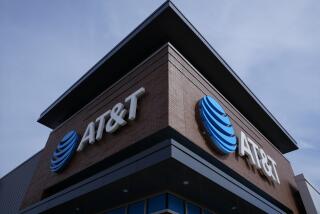New iPhones are a hole in the pockets of wireless companies
Apple may have yet another gotta-have-it gadget with the iPhone 5. But for wireless companies, the device is one more hole in their pockets.
To woo buyers and upgraders, service providers like AT&T; and Verizon offer hefty subsidies to make the iPhone more affordable (providing you accept a two-year contract). That phone offered for $199 may actually have a list price of more than $600.
Analysts expect Verizon’s profit margin to drop by more than six percentage points because of the iPhone subsidy. Sprint’s margin could fall by nearly nine percentage points and AT&T;’s by more than 11 points.
Wireless carriers say it all evens out. Yes, they lose a big chunk of change on the subsidies, but they insist this is compensated by increased customer volume and data usage charges.
Here’s what I say: Let’s do away with these subsidies and fine-print-stuffed contracts, and allow smartphones and service providers to compete on the open market.
I suspect that if handsets and service providers had to actually go toe to toe, we’d see lower prices pretty quickly and more innovation.
Apple gets away with its sky-high list prices because wireless companies’ subsidies make the market less transparent. Does anyone think the iPhone would still cost so much if it had to actually compete on price?
Considering that the service providers would likely come out ahead if they didn’t have to underwrite every iPhone, I’m amazed that pushing for an end to subsidies isn’t at the top of their to-do lists.







